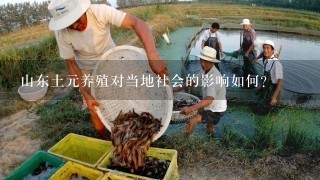山东土元养殖对当地社会的影响如何?

Answer:
Positive Impacts:
- Economic development: The aquaculture industry creates jobs and stimulates local economic growth.
- Food security: It ensures a reliable and affordable source of seafood for the local population.
- Cultural heritage: Traditional farming practices and the local culture are preserved through aquaculture.
- Environmental protection: Sustainable aquaculture practices can reduce pollution and protect the marine environment.
Negative Impacts:
- Overfishing: Unsustainable fishing practices can deplete fish stocks and threaten the sustainability of the industry.
- Environmental degradation: Aquaculture activities can generate waste and pollution, harming the marine ecosystem.
- Social displacement: Aquaculture facilities and infrastructure can lead to land use conflicts and displacement of local communities.
- Health risks: Consumption of contaminated seafood can pose health risks to consumers.
Overall Impact:
The positive and negative impacts of aquaculture on a local society depend on various factors, including the management practices employed, the availability of resources, and the social and economic context.
Additional Considerations:
- The impact of aquaculture on a society can vary depending on factors such as the size of the industry, the local fishing fleet, and the availability of alternative sources of food.
- Sustainable aquaculture practices, such as responsible fishing, can mitigate some of the negative impacts.
- The long-term economic and environmental benefits of aquaculture should be carefully considered alongside the potential risks.





































































